Diabetes is a condition in which the body does not properly process food for use as energy. The pancreas, an organ that lies near the stomach, makes a hormone called insulin to help glucose get into the cells of our bodies.
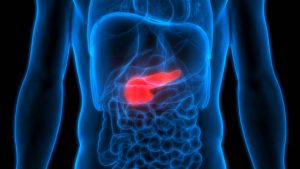
When you have diabetes, your body either does not make enough insulin or cannot use its own insulin as well as it should. This causes sugar to build up in your blood. This is why many people call diabetes “sugar”.
Diabetes affects all age groups.
Types of Diabetes
There are 3 main types of Diabetes:
Type 1

This type of Diabetes can affect persons of any age group. It is, however, more common in children and young adults. Type 1 Diabetes occurs when a person produces little or no insulin. This cannot be prevented as the cause is unknown, but is treated with daily insulin injections.
Type 2
Type 2 Diabetes is the most common type and is generally found to affect adults. Even though it is more commonly seen in adults, teens and young adults are now being diagnosed with this type because of high levels of obesity in this age group.
Type 2 Diabetes occurs when the body does not make or use insulin well. Treatment with pills, insulin injections or both, is needed to help control this type of diabetes.
You are at risk of developing Type 2 Diabetes if you’re:
- obese or overweight
- physically inactive
- eating unhealthy food
- getting older
- a smoker &/or heavy drinker
- have high blood pressure & high blood cholesterol
- have a family history of diabetes

Gestational Diabetes

This type of diabetes occurs in pregnant women who were not previously known to have diabetes. In Gestational Diabetes, high blood sugar levels may develop during the pregnancy due to the influence of pregnancy hormones. Most of the time it goes away after the baby is born. But, even if it goes away, these women and their children have a greater chance of getting Type 2 Diabetes later in life.
What is Pre-diabetes?
Pre-diabetes is a condition in which blood glucose levels are higher than normal but not high enough for a diagnosis of full-blown Type 2 Diabetes. Two types of Pre-diabetes are Impaired Glucose Tolerance (IGT) and Impaired Fasting Glucose (IFG). Persons who are found to have Pre-diabetes should make immediate lifestyle changes to help lower their blood sugar levels to normal, so that they can slow or stop their progression to developing Type 2 Diabetes.
Common Signs and Symptoms
- Increased hunger and thirst
- Frequent urination
- Vaginal infections
- Slow healing wounds
- Blurred vision
- Extreme tiredness
- Nausea and vomiting
- Weight loss
- Weight gain
- Impotence
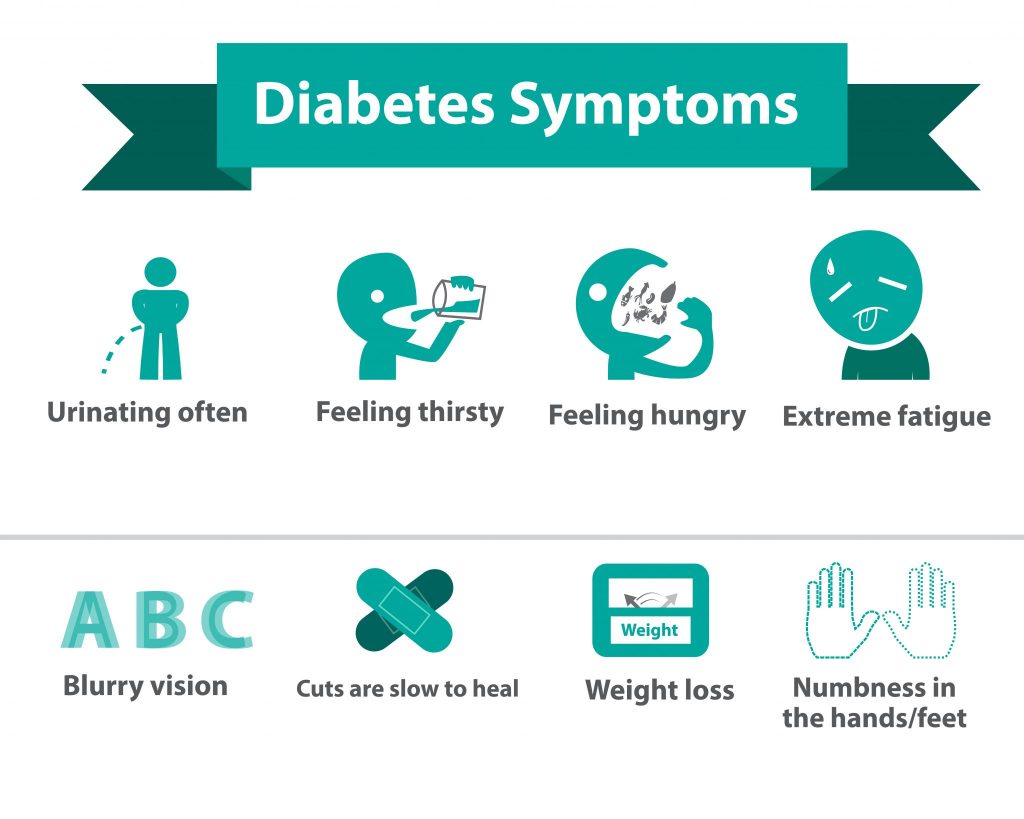
Complications
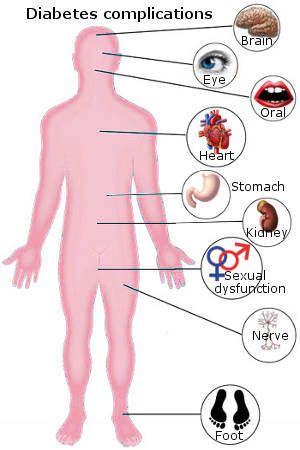
Diabetes can affect every organ in the body. If it is not controlled, you may develop complications or problems, such as:
- stroke
- heart disease
- foot disease – ulcers or sores that may led to amputation if not properly treated
- nerve damage – this can cause numbness, tingling or pain in the toes and fingers
- kidney disease (kidney failure)
- eye disease – reduced vision and blindness
- skin conditions
- gum disease and loss of teeth
- sexual problems like impotence in men
Controlling Your Diabetes
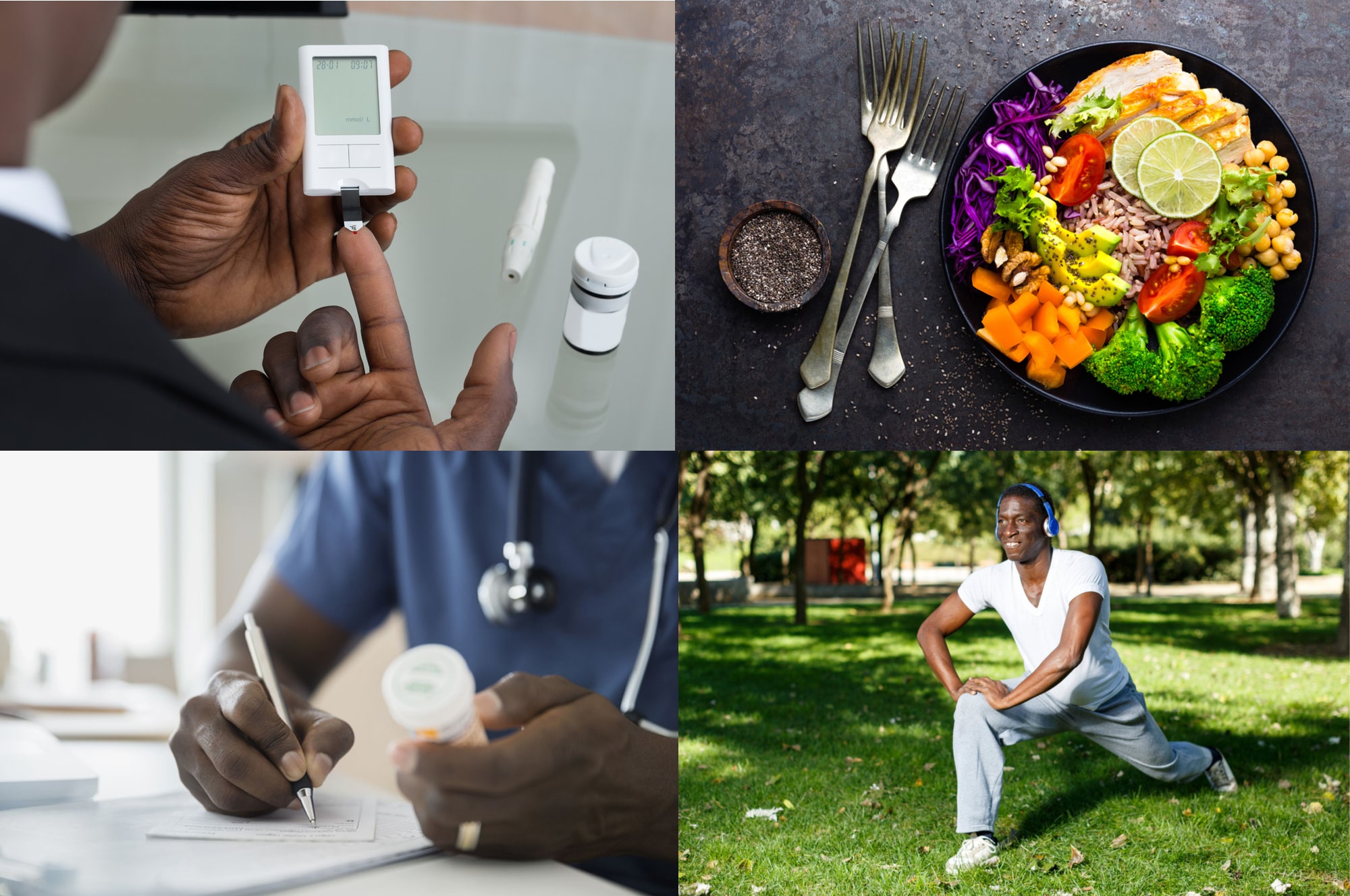
It is very important that persons with Diabetes take responsibility for their health, know their numbers, and control their condition as they aim for a healthier lifestyle.
Normal Glucose Values for Persons with Diabetes
For persons with Diabetes: | |
Test | Goals for Most Persons* |
Fasting blood glucose | 3.9 -7.2 mmol/L (70 -130 mg/dL) |
2 hours after meal (2hr post prandial) | ˂10.0 mmol/L (180 mg/dL) |
HbA1c | ≤7.0% |
*Individual treatment goals may vary. Talk with your doctor.
It is very important that persons with Diabetes take responsibility for their health, know their numbers, and control their condition as they aim for a healthier lifestyle.
Myths and Facts
Myth: Persons with Diabetes can’t eat or drink anything with sugar.
Fact: This is not true. Sugar and starch is a source of energy that everyone, including persons with Diabetes, needs in their daily diet. Persons with diabetes need to eat a healthy diet that is balanced, which can include sugar and starch in moderation.
Myth: Only adults can get Type 2 Diabetes.
Fact: While it is true that persons can develop Type 2 Diabetes as they get older, in recent years more and more children and adolescents have been diagnosed with Type 2 Diabetes because of an increase in overweight and obesity, unhealthy eating habits and decreased physical activity in this age group.
Myth: If you are already at risk of getting Diabetes, there’s nothing you can do to prevent it.
Fact: Changing your lifestyle – healthy eating, increased physical activity, maintaining a healthy weight, regular check-ups – can delay or prevent the development of Type 2 Diabetes in persons that have risk factors. This is also true for persons with Pre-diabetes.
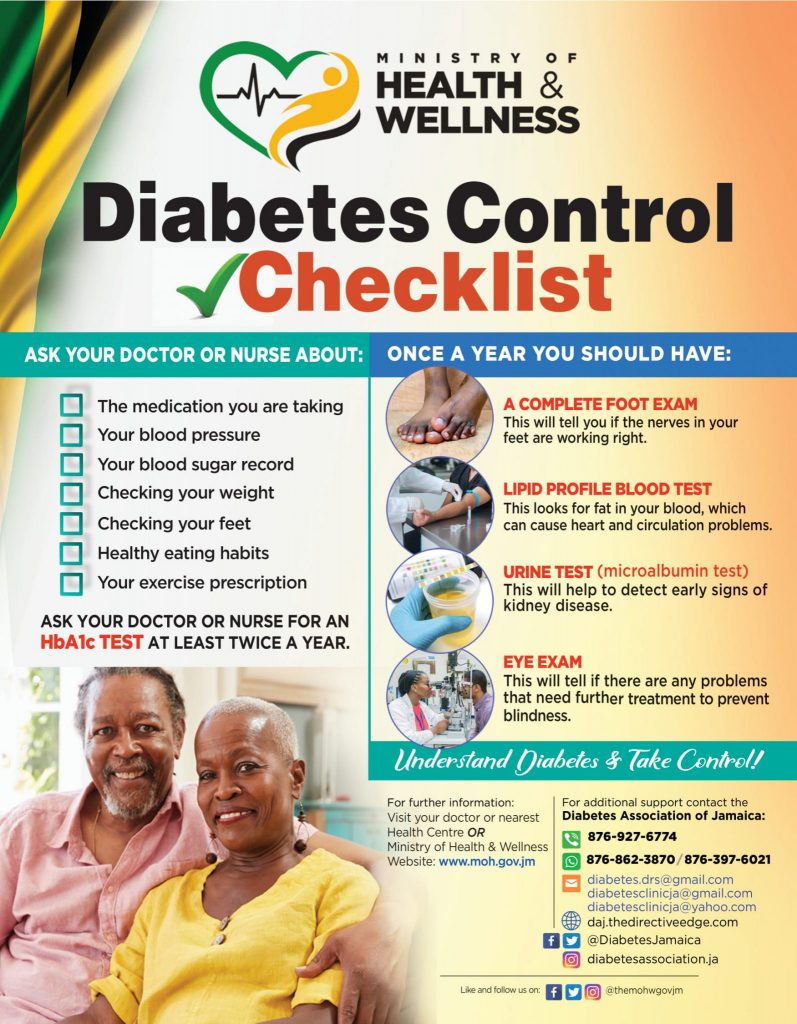
Visit the National Health Fund (NHF) website, https://www.nhf.org.jm/ , to see how can get your diabetes drugs (covered under the NHF act) subsidized.
For additional support, contact the Diabetes Association of Jamaica at:
Address: 1 Downer Avenue, Kingston 5
Tele: 927-6774; 397-6021; 618-5918
Fax: 978-2510
Email: diabetesjamaica2@gmail.com
diabetesclinicja@yahoo.com
diabetes.drs@gmail.com
Website: http://www.diabetesjamaica.com/.

